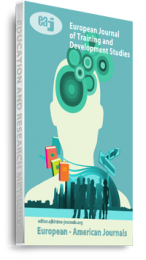The study investigated relationship between emotional intelligence and academic resilience among university students in Nigeria. The correlational design was adopted for the study. A sample of 1827 federal university students were used for the study drawn from a population of over 1.8 million spread across 43 federal universities. Stratified and simple random sampling techniques were used to compose the sample. Five research questions were answered while five corresponding null hypotheses were tested in the study at 0.05 level of significance. Two instruments were used for the study which are the Emotional Intelligence Survey (EIS) and Academic Resilience Questionnaire (ARQ). The instruments were validated by experts in educational psychology, Measurement and evaluation. Reliability of the items in the EIS were 0.71 for Self-awareness, 0.77 for self-regulation, 0.82 for motivation, 0.88 for social skills and the ARQ was realized at 0.89 respectively using Cronbach alpha. Simple regression was used to answer research questions 1-4 while multiple regression was used to answer research 5. Hypotheses 1-4 were tested using independent sample t-test associated with simple regression while hypothesis 5 was tested using ANOVA and t-test associated with multiple regressions. Findings revealed among others that Self-awareness, self-regulation, motivation and social skills jointly accounts for 79% variation in academic resilience of university students in Nigeria. Based on the findings, it was recommended among others that universities should incorporate self-awareness, self-regulation, motivation and social skills training in their curriculum to help students build resilience. It was concluded that students who have high level of self-awareness, self-regulation and motivation usually have academic resilience.
Keywords: Academic resilience, Emotional Intelligence, Federal University students.

